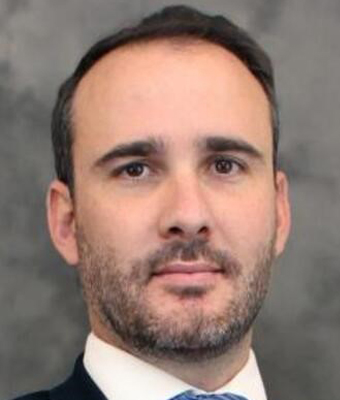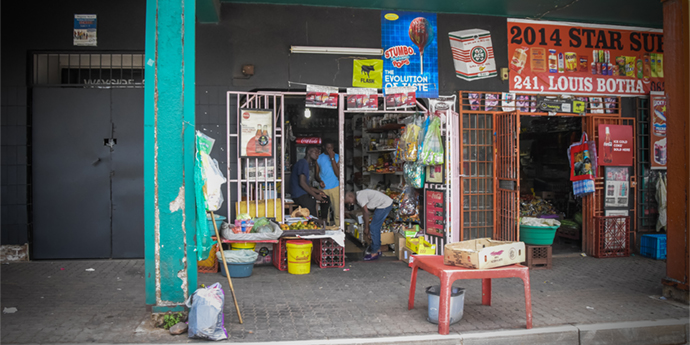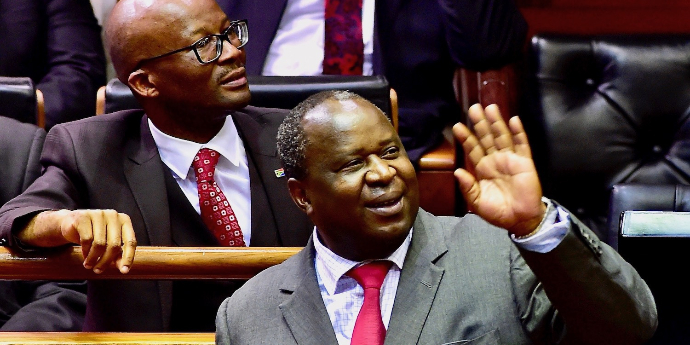Financial Modeling for Power Project Finance
Unlock Advanced Expertise: Navigate Investment Decisions with Confidence
Course Overview
Dive into a unique learning experience designed for professionals in the African infrastructure sector, with a primary focus on power project finance. This course will teach you to predict and balance financial variables to produce detailed and insightful financial models, conduct sensitivity analyses, and how to leverage financial models to inform investment decision-making. Using this knowledge, you will be able to identify opportunities for growth for your organisation while mitigating risk.
What you will walk away with
- Deep insight into financial modelling, especially in the power sector.
- Skills in constructing a financial model for privately funded power projects in high-risk contexts.
- Skills in building a basic financial model for a project-financed asset.
- A thorough understanding of how the principles of project finance influence the financial structuring of projects.
- Knowledge in calculating the common operational metrics of a renewable energy project, including capacity and generation.
- Skills in conducting sensitivity analyses to model the impact of various inputs on power project economics and viability
Additional Course Information
MODULE BREAKDOWN
Curriculum Overview
Module 1
Building a basic financial model
Build a best-practice financial model from scratch for a renewable energy project finance deal. Participants will be taught how to apply core project finance concepts to a financial model using a case study of a renewable energy project. Concepts taught include benefits of leverage; debt amortisation profiles; determining borrowing capacity and debt sizing; modelling generation (incl. curtailment); capex and operating expenses; unlevered returns; construction and grant funding; depreciation; taxation; and model optimisation for both debt and equity investors.
Module 2
Running sensitivity analyses
Delegates will be taught best practice for building and running sensitivity analyses for key variables and inputs, mainly using a scenario manager and data tables. This includes stress-testing the model for debt sizing; sensitivity analyses to review the impact of changing variables on required prices/ concession payments; and determining the most sensitive variables. This is a key skillset for understanding and quantifying investment risk, and forms a core part of the week’s taught content.
Module 3
Understanding how the financial model informs investment decision-making (for private and public sector representatives)
Through applying the project finance concepts taught using the model, participants will be able to predict and analyse investment decisions. Having both public and private sector representatives in the classroom will allow for robust discussions, using the model outputs and variables
Minimum Requirements:
- NQF 4 (High school equivalent)
- English Proficiency
Who should apply:
- Public and private professional in the African Infrastructure sector
- Project finance practitioners
- Project developers
- Project finance professionals working in the government, banking, or investment sectors.
- Ideal candidates will have completed UCT GSB’s Finance, Contracts and Risk Mitigation for Private Power Investment in Africa.
Learn with the best
Our Internationally acclaimed researchers and teachers are all dedicated and gifted individuals who contribute directly to UCT GSB's reputation of excellence.

Director: Power Futures Lab

Head: Executive Education

Lecturer
FAQ
15% for 3 - 6 applicants (bulk discount applied from third applicant)
10% for 7+ applicants (bulk discount applied to all applicants)
10% for alumni of UCT GSB academic and Executive Education courses
The UCT GSB's Breakwater Campus is situated in the heart of Cape Town's most popular tourist attraction, the Victoria and Alfred Waterfront. Centrally located and easily accessed, the UCT GSB is just 1.5km away from the central business district and 20 minutes from Cape Town International Airport.
As an added benefit to studying at the UCT GSB, you'll be situated in one of the most beautiful cities in the world.
Certificate of completion
Flights & accommodation costs are not included.
The course is a non-credit-bearing course delivered at the equivalent of an NQF 8 postgraduate level of study.
The course is accredited through UCT, which is a registered public higher education institution with the Council on Higher Education (CHE). Each programme is accredited through an internal UCT quality assurance process, as delegated by the CHE, ensuring the excellent quality of our offering.
In short, this course does not refer to NQF levels.
TAKE THE FIRST STEP TODAY
Acquire new competencies and move your career to the next level!
Ideas Exchange

Breaking Barriers to Sustainable Finance
From navigating infrastructure challenges to meaningful finance, Bruce Jelley shares his experiences and insights about the MCom in Development Finance at the UCT Graduate School of Business, and how it is reshaping the way South African developers approach sustainability.
Read Article
COVID-19: Impact investing’s inflection point
As South Africa marks the anniversary of its first lockdown we reflect on our journey toward a post-COVID economic recovery and how the systemic shift toward impact investing and other financial innovation may point the way to lasting change in the country.
Read Article
Will COVID-19 be the catalyst for the most devastating economic crisis of our time?
COVID-19 erupted in a macroeconomic environment that is a rich cocktail of economic contraction and contradiction. History teaches us that if we don’t pay attention to this — we risk underestimating the magnitude of the crisis that we face.
Read Article
Coronavirus - an excuse to downgrade African countries deep into junk
A number of rating agencies have downgraded emerging market economies during the COVID-19 pandemic. Their actions have raised the question: why do so during a crisis?
Read Article
How investors can support small businesses through the COVID-19 lockdown
For a small business, twenty-one days may be as long as it takes to close its doors forever. But investors might just have the tools to make sure that doesn’t happen.
Read Article
Widening access to financial services
UCT GSB MBA alumna, Philisiwe Precious Nduli, named as one of the Top 200 Young South Africans by the Mail & Guardian in 2018, is passionate about widening access to financial services — and ensuring that those services make the world a better place.
Read Article
Development Finance Institutions (DFIs) can lead SA’s economic recovery
While government has identified DFIs as a key partner in delivering an economic turnaround — these institutions lack capacity and resources to do their jobs effectively. Fixing this will be a necessity.
Read ArticleRelated Courses

Finance Contracts

